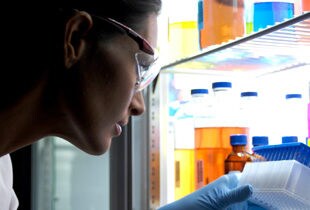Developing countries face numerous challenges, one of the largest is food insecurity. Large populations combined with limited acreage on which to cultivate crops mean millions of people in the world face chronic food shortages. Other regions look ahead nervously as their populations grow and agricultural capacity do not keep pace. Due to climate differences, the developing world often relies on different food crops than countries farther north, and genetic exploration of these crops is less complete than for temperate staples like wheat. Thus, the developing world has emerged as a region that stands to benefit mightily from modern genetic and genomic technologies, and organizations like International Crops Research for the Semi-Arid Tropics (ICRISAT) have made that challenge their own.
ICRISAT specializes in improving the yields, disease resistance, and other attributes of crops common to the dry tropics, including millet, sorghum, and lentils, as well as training farmers in improved agricultural practices. ICRISAT has branches in India and numerous African countries to spread this expertise. Focusing on crops already grown in large quantities in these regions, rather than inventing new varieties of temperate crops[PMA1] suited to the tropics, allows ICRISAT’s efforts to fit within existing foodways far more effectively, but it also means that there has been less work already done on these crops, requiring a greater investment in genomics technology to move forward.
Such an ambitious agenda presented ICRISAT’s Dr. Rajeev Kumar Varshney with many choices of techniques to employ: “When we wanted to use the genomic technology, we had a range of molecular breeding options we could use, such as marker-assisted backcrossing…we had a lot of options, but we chose the Applied Biosystems Axiom technology, especially for the SNP arrays, because we found that the Axiom arrays are very powerful and for us this was very cost-effective.” [PMA2] Dr. Varshney and his colleagues use Axiom arrays for molecular mapping and molecular breeding, to identify markers associated with traits, and genotype test populations and help them develop superior genetic lines. ICRISAT aims to accelerate genetic gains in crop breeding using these methods, particularly for crops such as chickpeas, pigeon peas, and peanuts that have not yet realized the same gains seen in other crops. Dr. Varshney’s team is also working on increasing the nutritional value of these staple crops, developing varieties enriched in vitamins and minerals, to fight malnutrition in regions where a small number of foodstuffs can dominate low-income diets. Dr. Varshney’s efforts with Axiom arrays have already paid off, helping to address constraints and challenges in the breeding of pigeon pea (Cajanus cajan), chickpeas (Cicer arietinum), and groundnuts (Arachis hypogaea).[PMA3] [AG4]
Dr. Varshney believes that genomics methods are the future of plant breeding across species and purposes: “The days are gone when breeders could develop varieties using just random methods…by using genomic technology, you can predict the phenotype of the lines at the seed stage.” He continues, “You can enhance the precision and efficiency of the breeding program, and that can happen using genomic technologies.” Working closely with Thermo Fisher Scientific to develop customized Axiom SNP arrays has been a fruitful partnership for Varshney’s lab and for ICRISAT at large, featuring a well-informed discussion of needs and a transparent array development process. When working with developing countries, cost is a major obstacle to widespread adoption of new technology, and Axiom arrays have proven to be a cost-effective solution for ICRISAT’s operations in India, Africa, and beyond. Thermo Fisher Scientific also provides extensive training for new users, making sure that use of Axiom arrays not only solves immediate problems, but builds local expertise for the future.
For more information about Thermo Fisher Scientific’s offerings on plant genomics, click here. For more information about the Axiom genotyping solution, click here. For more information about custom Axiom arrays, click here. To contact Thermo Fisher and discuss your genotyping needs, click here.
For Research Use Only. Not for use in diagnostic procedures.



Leave a Reply